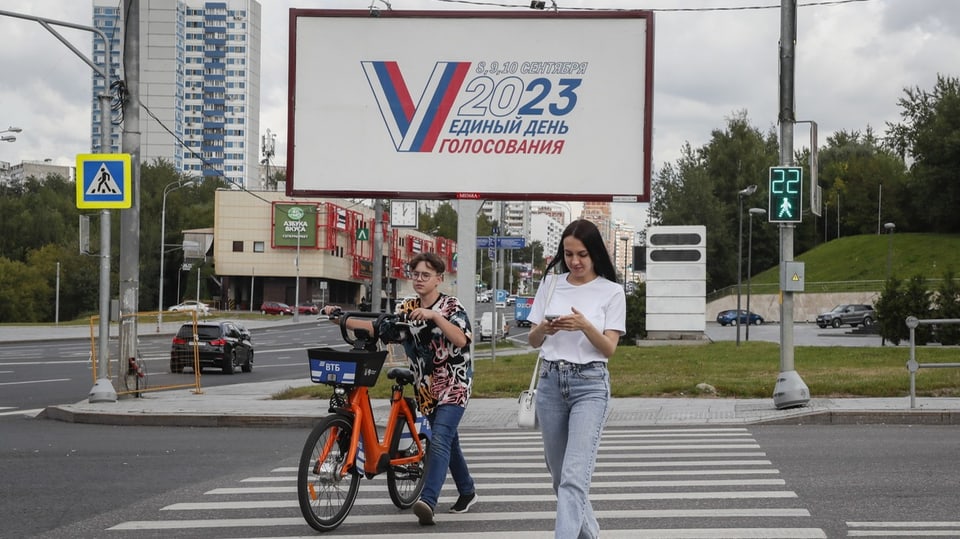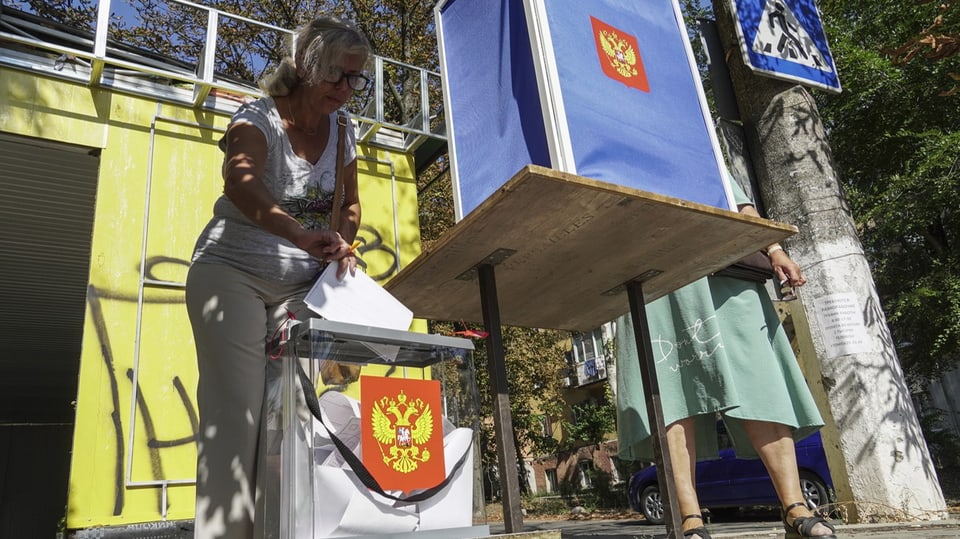In Russia there will be elections this Sunday at the city and regional levels. The Kremlin wants an overwhelming victory, but it cannot score points with war rhetoric. SRF Russia correspondent Calum MacKenzie explains whether one can even speak of real elections and
Can one even speak of fair elections in Russia?
No. The Kremlin has stifled any real opposition and does not allow independent and critical media reporting. The authorities have recently begun to take more action against election observation organizations.
Why are the elections still important?
Russia has several parties and only one, the ruling party United Russia, is considered Vladimir Putin’s party. The other parties have their supporters and sometimes intercept protest votes. But they are considered a “system opposition” because they work closely with the Kremlin and support its line, including the war against Ukraine. “United Russia” clearly wants to assert itself: these elections are seen as a test run for the 2024 presidential elections, in which Putin is expected to do particularly well.
So is there an election campaign?
For decades, the Kremlin has been using a variety of tricks to shape election results according to its own ideas. He cannot simply falsify the results everywhere. The approved parties are not real challengers to the government, but in individual regions they have a chance of doing well – for example because the candidates from “United Russia” are unpopular figures who were appointed by Moscow. The Kremlin is also trying to mobilize its electorate in conventional ways.

Legend:
There is a poster on the streets of Moscow pointing out the elections.
Keystone/YURI KOCHETKOV
Which topics dominate?
“United Russia” initially relied on war rhetoric during the election campaign, but later dropped this strategy. Russians tend not to want to deal with the war. In addition, the Wagner uprising in June made it clear to many that the war can trigger chaos and uncertainty for them too. The issue has apparently become too sensitive, as Putin’s candidates are now primarily talking about issues such as modernization and investment.
How interested is the population in voting?
Studies have shown for years that most Russians want to stay out of politics and don’t believe they can change anything. This year, in the current situation, the desire to express oneself politically is likely to be even deeper than usual. Observers are expecting low voter turnout.
Will elections also be held in the “annexed” parts of Ukraine?
Yes, although it is even less possible to speak of a legitimate election here and Russia is not allowed to carry it out under international law. The candidates include many figures flown in by the Kremlin who previously had nothing to do with Ukraine. Russia wants to present the whole thing as a proper election, but it is happening under military occupation. Russia does not completely control these areas, and they are largely depopulated because hundreds of thousands of people have fled. There is a climate of fear in the occupied territories because Russian troops are cracking down on pro-Ukrainian residents.

Legend:
Voting is also taking place in the Russian-occupied areas of Ukraine: a woman casts her vote in Mariupol.
KEYSTONE/EPA/STRINGER
